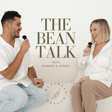
#12 How Endocrine Disruptors Could Be Affecting Your Hormone Health & Fertility
The Bean Talk - Episode 12: How Endocrine Disruptors Could Be Affecting Your Hormone Health & Fertility
In this episode, Riannon dives into the sneaky world of endocrine disruptors and how they might be affecting your hormonal health and fertility. From everyday skincare products to household chemicals, these disruptors can have a surprising impact on your body’s natural balance.
Learn about the common sources of endocrine disruptors, how they interfere with your hormones, and actionable steps you can take to reduce exposure. Riannon also shares her top tips for detoxifying naturally, including antioxidant-rich foods, herbal support, and easy swaps for a lower-tox home.
If you're navigating your fertility journey or looking to support your overall hormonal health, this episode is packed with practical advice to get you started.
Connect with us on Instagram at @mungbean_health, or visit mungbeanhealth.com for more personalised support.
Brands mentioned in the episode:
YUKA App: https://yuka.io/en/
Moo Goo: https://moogoo.com.au/
Koala Eco: https://koala.eco/
Weleda: https://www.weleda.com.au/
Lust Minerals: https://lustminerals.com.au/
Discount code: MUNGBEAN15 for 15% off
